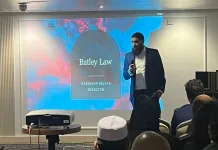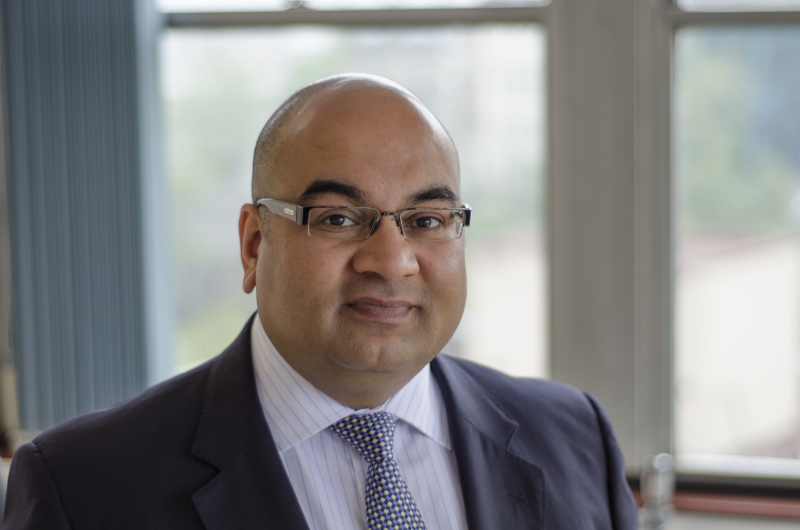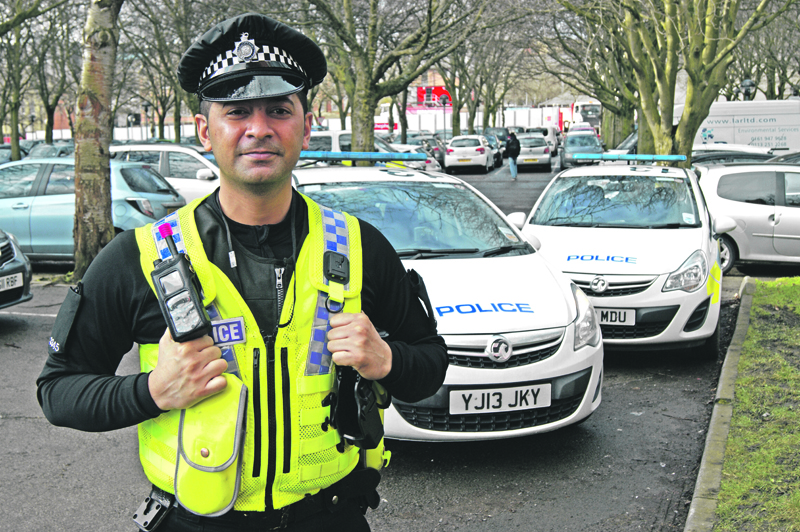
Opening doors for dementia
A BME Dementia service at Touchstone is breaking down the barriers of dementia awareness in the city with a host of initiatives and projects aimed at tackling the cultural taboo.
The Alzheimer’s Society estimates that there are currently 800,000 people with dementia in the UK with over 11,500 of those from BME (Black and minority ethnic) backgrounds.
Ripaljeet Kaur has worked as a BME dementia worker for Touchstone for the past four years. Her role is to raise awareness about the condition within a host of diverse communities.
She attends community groups and talks about dementia symptoms and the pathway to get the diagnosis and the services afterwards.
Ripaljeet does one-to-one work and supports dementia sufferers and their carers to access mainstream service and helps people who are struggling to get a diagnosis.
She said: “We’re hoping to stop the stigma and taboo in BME communities about any mental health issues.
“In the five South Asian languages, there’s no word for dementia. The closest word is ‘crazy’, so there’s a huge stigma attached to it.
“My role is to break that stigma. Dementia is an illness like anything else, and we treat it like that. It’s not age related. It’s different from when you lose memory or hearing from old age – it’s an illness that affects the brain.
“We’re pushing for an early diagnosis for people so that they can be supported in the early stages when they have the capacity to make decisions. We can’t brush this under the carpet.”
Dementia can affect anyone. It is a condition that includes memory loss and difficulties with thinking, problem-solving or language.
It is caused when the brain is damaged by diseases, such as Alzheimer’s or a series of strokes, and is progressive, meaning the symptoms will gradually get worse.
Vascular dementia is especially common in the BME (Black and Minority Ethnic) community and is caused by an impaired supply of blood to the brain, caused by a series of small strokes.
Some of the first signs of Alzheimer’s disease include lapses in memory and problems with finding the right words. Other symptoms that may develop include memory problems, such as forgetting the way home from the shops, or being unable to remember names and places.
Mood changes are common, particularly as the parts of the brain that control emotions become affected by disease. People with dementia may also feel sad, frightened or angry about what is happening to them.
Communication problems can also occur, such as a decline in the ability to talk, read and write.
Ripaljeet runs a Hamari Yaadain dementia cafe every month at Touchstone on Harehills Avenue in Leeds. The support group is communicated through the mother tongue of Punjabi, Hindi or Urdu.
People with dementia attend so that they can touch base with social workers or have their benefits checked.
People with dementia attend so that they can touch base with social workers or have their benefits checked” – “The café is attended by people with dementia and their family members for a chat over a cup of tea. They also get helpful information or advice about any issues relating to dementia and take part reminiscing activities.
Ripaljeet continued: “If people have an early diagnosis, it’s easier for them to plan their life and get their finances sorted.
“We hope people will recognise the symptoms and go straight to their GP for a memory test.
“If you don’t know much about dementia, you may think your life is ruined but dementia affects everyone differently. People have been diagnosed with dementia for 10 years but they’re still doing the things they used to do with help from a support network. People can still live well with dementia.
“In BME families, the network is usually quite large but sometimes that can be confusing for the family and the dementia sufferer because every member of the family has their own idea of what is the best way forward. That’s where we can also offer some help and find some middle ground. After all, we aim to provide a person-centred service.”
Diagnosing dementia is often difficult, particularly in the early stages. The GP is the first person to consult and they may then refer the person being diagnosed to a specialist such as a consultant.
Assessments can include conversations with the person being diagnosed and those close to them, a physical examination, memory tests and/or brain scans.
The Mini Mental State Examination (MMSE) is the most commonly used test for complaints of memory problems or when a diagnosis of dementia is being considered.
Becoming forgetful does not necessarily mean that you have dementia. Many of us notice that our memory becomes less reliable as we get older. It can also be a symptom of stress or depression. In rare cases, dementia-like symptoms can be caused by vitamin deficiencies or a brain tumour.
Even if the diagnosis is dementia, much can be done after a diagnosis to support someone to live well with the condition.
To find out more, please ring Ripaljeet on 0113 2192727















